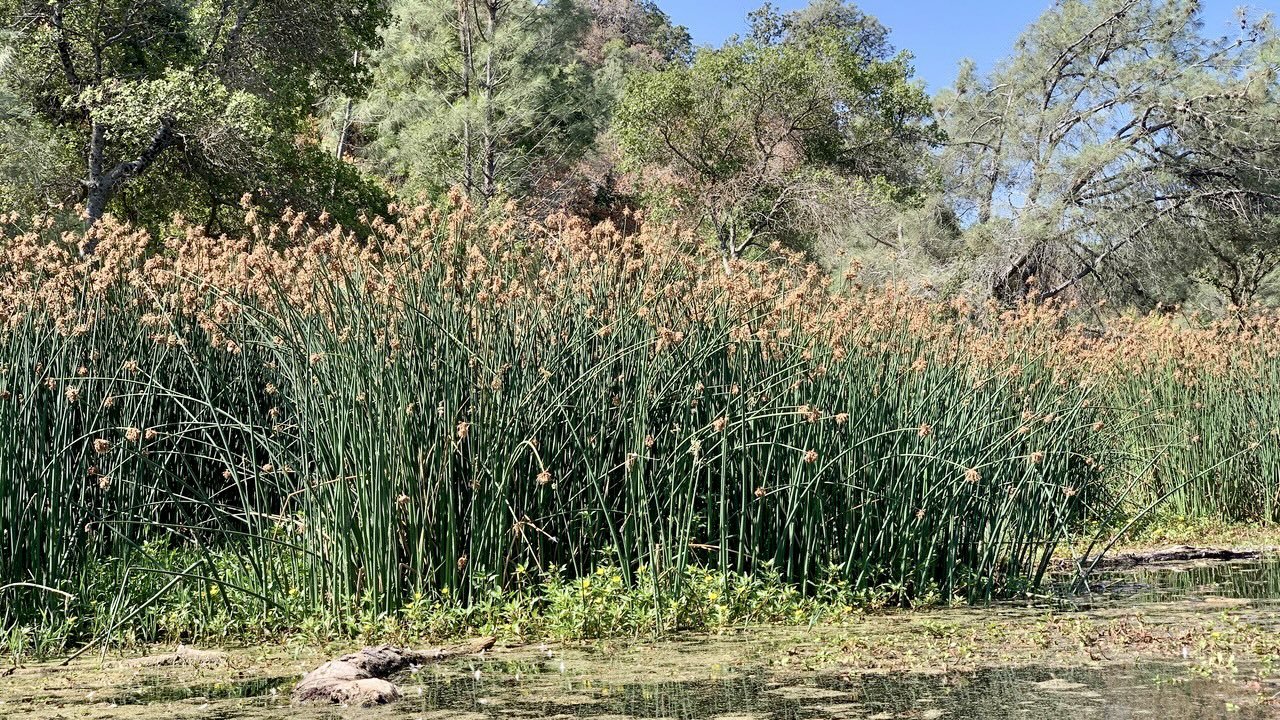Member Meditations: Holy Week
Tule, of many and various uses to the indigenous people, still grows plentifully along Putah Creek.
Since Ash Wednesday CCA has been featuring a series of weekly reflections written by CCA members serving in diverse contexts, who are living the vision of the Appalachian pastoral letters within and outside the region. In today’s Holy Week meditation, Carol Warren invites us into earth listening amid cycles of death and life.
Death and resurrection are all around me this time of year, the Book of Creation illustrating my Lenten and Holy Week journey. I’ve only to cross the street into the park, and I see the brown and crumpled leaves of autumn being shoved aside by the life-driven green of daffodils and paper whites. The early-blooming winter daphne, unfurling its delicate pink and white flowers laden with scent, is a cause for joy and a promise of spring life to come.
I’ve always loved the natural world, and enjoy nothing more than being surrounded by trees and rocks, and patiently watching the movement of creatures that inhabit the forests and marshes. But over the past couple of years, I have been practicing listening to them as well. I’ve been joining a group of “earth listeners,” mainly in Europe and the U.S., who spend some time each Friday posing questions and tuning in to what the earth might teach us in these changing seasons of death and rebirth. I’ve been discovering that Creation is not only full of beauty and delight, but also a source of great wisdom. How could it not be, when Holy Wisdom herself was present “in the beginning?”
Climate change is with us. We see it in the droughts and floods, the storms and changing crop patterns, the migration of people whose traditional lands will no longer support them. I am never quite sure how to process the planet-altering shifts, either spiritually or practically. I might sit by the creek and ask, “How do you deal with diminishment?” or say to a rock, “How can you be so steadfast?”
Recently, I saw an article pointing out the large number of tree deaths in the Sierras, both from drought and from disease-bearing insects. I sat with a redwood and asked it, “How to you respond to adversity?” As I sat quietly, my back against its trunk, the tree began to send messages. I sink my roots deeper…I become more rooted instead of growing more above ground. I draw support and nutrients from other trees rooted here- we share our capacity, and other trees send nutrients to fight the insects.
It may seem strange at first, but aren’t those actually good practices for us humans, too, especially during Lent? When we feel saddened and at a loss, can’t we sink our roots deeper, become more rooted in the values and beliefs we cherish? And what a blessing to draw support from others similarly rooted, who share our concerns and our faith! We are not on this journey alone, any more than the trees are. The connections are there for the making - all we have to do is choose them. The spirit and generosity of others can be such a gift in allowing us to overcome our own obstacles.
We are so much a part of this web of life, and have so much to learn from God’s Creation. As soil scientist James Cassidy has said, “Every molecule in your body has been through the soil billions of times, and the fact that you’re not soil at this moment is a temporary condition…” Like everything else in nature, our mortal bodies age and die. We are dust and to dust we return - the message of Lent. But Easter follows and the immortal spirit shakes off the dust and lives on!
Carol Warren is a long-time CCA member, who was part of Bishop Sullivan’s working group helping to formulate the Pastoral Letter “At Home in the Web of Life,” and also contributed to “The Telling Takes Us Home.” She now lives in California, but her heart is in the West Virginia hills.

